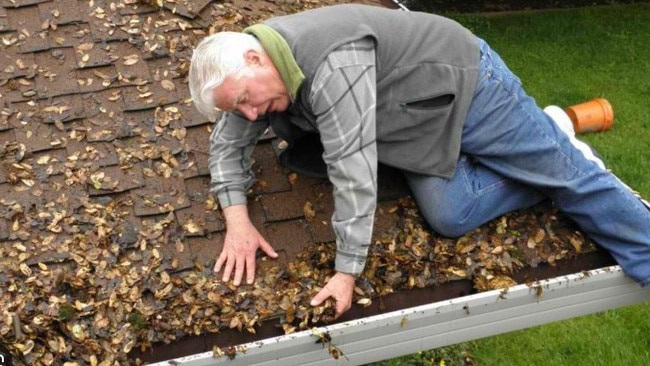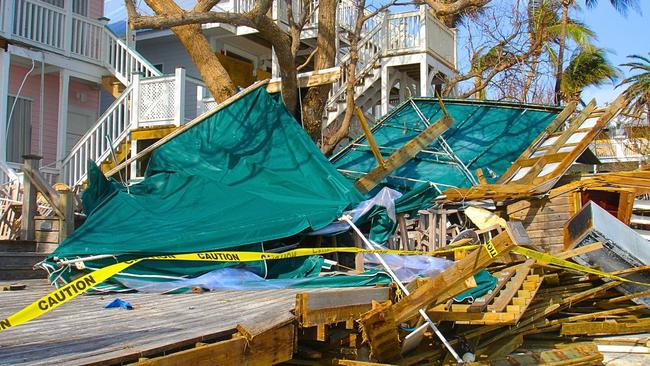Renters reminded: Landlords fix damage, but content not always covered
As Cyclone Alfred looms, Tenants Queensland warns renters to secure properties and understand their responsibilities, as landlords won’t always be forced to cover damage. WHAT YOU NEED TO KNOW

QLD News
Don't miss out on the headlines from QLD News. Followed categories will be added to My News.
Queensland Renters Urged to Understand Responsibilities as Cyclone Alfred approaches
The state’s peak body for renters, Tenants Queensland, has made an urgent reminder to tenants about their rights and responsibilities in the event of storm damage from Cyclone Alfred.
Tenants Queensland CEO Penny Carr has warned renters not to assume landlords will cover all cyclone-related damages and to take necessary precautions before the severe weather hits.
Ms Carr emphasised that landlords are responsible for the maintenance and repair of rental properties, but tenants must also play a role in minimising potential damage.
She said if the cyclone damaged a property, the landlord was responsible for repairs, which include structural damage to the home, such as broken windows, roof damage, and water intrusion.
However, landlords are not liable for damage to tenants’ personal belongings in most cases related to damage from a natural disaster.
She said damage to a tenant’s goods from a natural disaster might be partly caused by the failure to repair and a renter may have a partial compensation claim, she said.

“Generally speaking, any maintenance task that requires getting on a ladder, such as clearing gutters or trimming overhanging branches, is the responsibility of the property owner,” Ms Carr said.
“But with Cyclone Alfred already approaching, it may be too late to arrange professional gutter cleaning or tree maintenance.
“If a tenant is concerned about blocked gutters or unstable trees, they should notify their landlord immediately.
“Bringing in garden furniture, securing loose objects, and making sure windows and doors are properly shut is the responsibility of tenants and go a long way in preventing damage.
“If damage occurs due to tenant negligence, such as leaving windows open during the storm, tenants could be held responsible for some repairs.”
Ms Carr said if a rental property was rendered unlivable due to cyclone damage, either the tenant or the landlord could end the lease agreement with minimal notice.
She said in cases where only part of the home is damaged by the cyclone, tenants may be entitled to a rent reduction.
However, she warned that disputes often arose when tenants and landlords disagreed on whether the home was still liveable and recommended taking photographic evidence.

“For example, if a three-bedroom home suffers cyclone damage and one bedroom is no longer usable, the tenant may request a partial rent reduction until repairs are completed,” Ms Carr explained.
“If a tenant wants to move out because they believe the home is uninhabitable, they should document the damage with photos and written reports.
“If a window is blown in and rainwater destroys a tenant’s furniture or appliances, it’s the tenant’s responsibility to replace those items unless they have lodged complaints about the window with the landlord prior to the event,” she said.

If a repair issue is deemed an “emergency repair” under the tenancy legislation renters can apply directly to Queensland Civil Administrative Tribunal for an urgent hearing, or arrange for emergency repairs to be carried out, up to the value of four weeks’ rent.
An “emergency repair” includes flooding or serious flood damage but it does not apply to rooming accommodation.
With the government warning that power outages could last for days, Ms Carr said tenants may be eligible for grants or rent reductions in certain instances if power outages lasted more than three days.
“Those living in high-rises where they rely on electric lifts would likely be eligible for rent reduction,” she said.
“However, a general power outage across the area wouldn’t typically qualify for a rent reduction unless it severely impacts the use of the home.”
What Should Renters Do Now?
Tenants Queensland urges renters to:
■ Notify landlords of any urgent maintenance concerns before the cyclone hits.
■ Secure loose items and ensure windows and doors are shut.
■ Store important documents and valuable belongings in a safe place.
■ Keep contact details for landlords, property managers, and emergency services handy.
■ Ms Carr also encouraged tenants who were concerned to visit the Tenants Queensland website, which provides fact sheets on storm and flood damage, including steps to take if disputes arise.
“We want tenants to be informed and prepared,” she said. “Understanding your rights and responsibilities before disaster strikes can make a big difference in the aftermath.”
More Coverage
Originally published as Renters reminded: Landlords fix damage, but content not always covered





